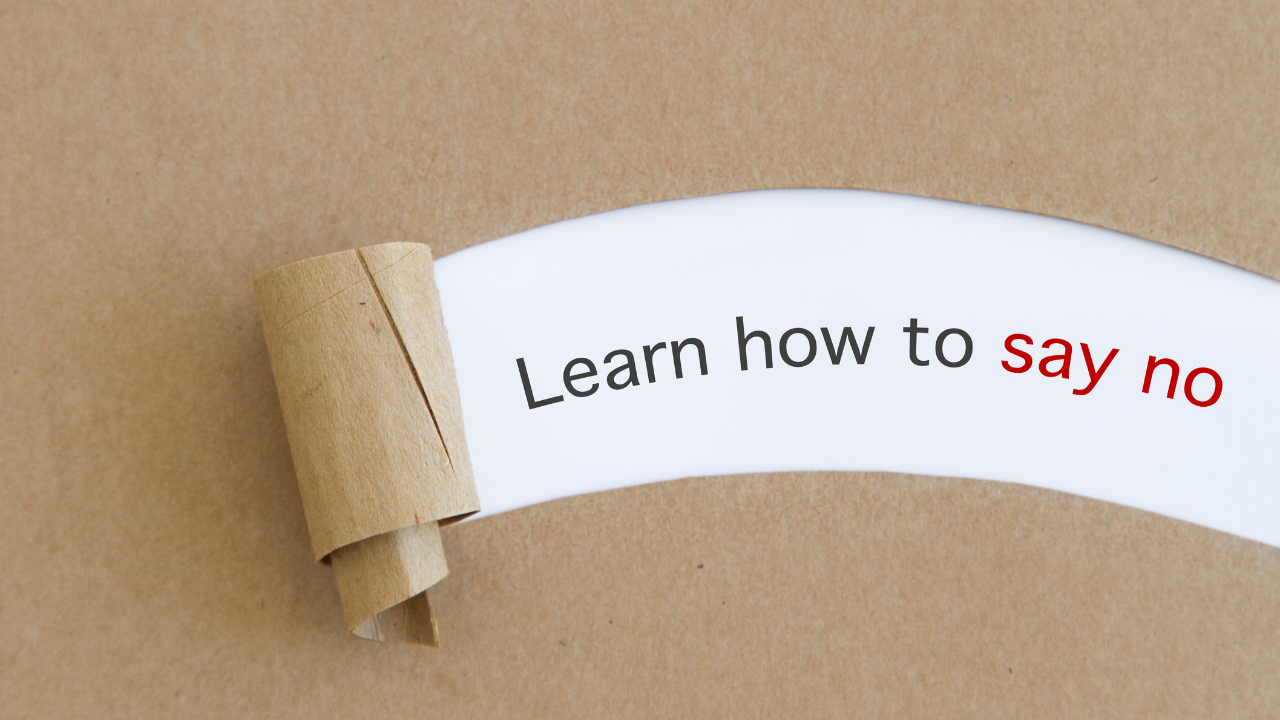Managing Food Pushers – A Critical Element of Recovery

Issue No. 13 | Brought to you by the Addiction Reset Community – ARC
Unlocking the secrets of processed food addiction and guiding you to find freedom from food and weight obsession.

In our culture, processed foods are in widespread use. Often, friends, colleagues, and family are very attached to processed foods and want recovering food addicts to use them too. Without meaning to, they may become ‘pushers’ of processed foods. To be successful in recovery, it is helpful for food addicts to find ways to protect themselves from these pushers and their suggestions.
Like many with food addiction, you may suffer from ‘relationship sensitivity’ stemming from repeated exposure to unfair and harsh judgements. This may make it difficult for you to stand up for yourself. With a little practice and preparation, you can learn to stop the pusher while maintaining civility.

In some cases, you may want, or need to, retain personal or professional relationships with these pushers, so it’s helpful to find a way to stop them without giving offence. Sometimes they just need a bit of education. Being consistent in the avoidance of processed foods will help reinforce boundaries.
If you are going to be seeing difficult people, you can practice saying the phrases shown below out loud. It may be helpful to visualize the person and pretend that you’re speaking the phrase to them. By rehearsing in the ‘planning’ part of the brain, you may find that they are more prepared and calm when the moment comes to set the boundary.

Here are some short, easy, effective responses to invitations to use processed foods:
- You’re invited to a party where a meal is being served but you know there won’t be anything you want to eat. You can say to the host: “I’ll bring my meal. I’ve just learned that I have about 300 food allergies so I’ll bring what I need. I can eat a salad of raw vegetables without dressing if you are serving that.”
- A waiter is not paying attention or is reluctant to go ask the chef about something: “I’m asking because if I get even a small quantity, I have a violent allergic reaction.”
- A person persists in insisting that you have something, ‘Just one bite won’t hurt’: Say “Even one bite would give me a violent headache and cravings for four days.” Or
- “I have joined a group where we all promised one another that we wouldn’t eat processed foods, even one bite. I can’t let them down.”
- A person explains in detail how their eating regimen works so well (except that they’re also sharing about their hospitalizations): “I’m glad you found something that works for you.”
- Someone finally asks you what you eat. (It can take between 2 and 10 years of someone watching your food before they ask.) Keep it very short and stop if they seem disinterested. All you’re doing is planting a seed that may take years to sprout. You could say: “I don’t eat anything that’s been processed such as foods that are in a package or have a label.” If they want to know more, you can give them examples of the proteins, starches and fruit or vegetables that you choose to eat. If they still want to know more, you can say, “I avoid sugars, flours, processed fats, excessive salt and dairy.” If they are jumping up and down with excitement, get their email address and send them the lists of food. If they’re looking indifferent or shocked, change the topic. Never insist or go on unless they’re genuinely interested.
- A health professional says that food addiction doesn’t exist: Give the professional the Handout for Health Professionals: Evidence of Food Addiction. It contains a list of studies showing that chronic overeaters act, walk, talk, and behave like drug addicts. The studies also show that food plans which eliminate processed foods work to reduce diet-related diseases.
- Someone insists ‘all things in moderation’: Ask them if that applies to cigarettes. Share that there is research showing that processed foods are more harmful than cigarettes. Associated with depression, anxiety, irritability, diabetes, amputations, heart disease, paralyzing stroke, irritable bowel syndrome, dementia, ADD, joint damage, etc.
- Someone shames you by saying that you should have more control, be stronger, have better willpower, etc. You can say: “I have so much control that I’m not even going to start.” Move away from that emotionally abusive person.
- Someone exclaims, ‘You’ve been doing so well, you should reward yourself’, say: I’ve gotten a lot of benefits that I don’t want to give up. Even one bite would bring back the cravings.
- Other good responses include: “I’m working on an elimination diet with my doctor so I just can’t have that right now”; “I’ve been clean off of processed foods for a long time and I’ve gotten a lot on results so I’m not going to break that streak.”.
- Change the topic to a compliment. That will encourage your pursuer to talk about themselves.
- Do limit your comments to your own experience so avoid the appearance of giving unsolicited advice. Start sentences with, ‘In my opinion…,’ or ‘This is just something that works for me.’
Sometimes it can take several years for someone to come back and ask again about what you eat. People may not be willing to change until they get a medical diagnosis, or someone in their family becomes sick. Always be patient and courteous. Encourage them to take things slowly.


Within the Addiction Reset Community (ARC) our members and their journeys are important to us. We find their stories inspiring and hopeful for everybody in health recovery.
“Why did I click on the email that mentioned joining the ARC on that particular day? I will never know. Joan's emails had been piling up in my inbox for some time without being opened. But on this day I had the urge to try again and find a lasting solution.
I knew I couldn't do this alone and I had to find the courage to bare my humiliation. My shame had kept me isolated. So in one last ditch attempt, I took the plunge and joined the ARC.
Attending the ARC chats has been fundamental in my regaining and holding onto my abstinence. For me, the inclusion of a few hours of Zoom chat time into my day has not been hard. From the 15+ hours available, I can find the perfect times for me. For the most part, all I did was switch off the TV. I am committed to these hours. and actively work my schedule around them. I need the time connecting with others.
On a couple of occasions since joining the ARC my desire to bolt has surfaced, but this community has become my safe place to fall. Why would I leave and where would I go? The hours thinking about my next fix have been replaced by the identifying with fellow sufferers and admiring others' courage when sharing their despair and comradeship.
Ongoing education regarding processed food addiction has given me insight into what drives this disease and why this is not my fault. The exercises incorporated in the meetings have given me a different perspective on how to view my world. My outlook on life has changed. The dark, desperate isolation has been replaced with a quiet confidence and calm approach to life's hiccups. I feel excited about the prospect of what the rest of my life holds for me.”

Many people reach out to Joan asking for advice and assistance on how they can begin their recovery journey.
Dear Joan
Why does it take so long to get back control over my food?
Joan responds:
Ending loss of control takes a long time because the food industry has been teaching the reward pathways in our brains to crave for decades. By putting addictive sugars, excessive salt and fat into our food and addicting our reward pathways - and then surrounding us with advertising and availability. The processed food industry has deeply addicted our brains. It could take years to reteach those brain cells to stop craving and stay calm when stimulated by advertising and availability.
DISCLAIMER:
Dr Joan Ifland (PhD) is a global expert on the subject of processed food addiction and is not a medical doctor. Information and response shared in this Newsletter are not intended for, and should not be construed as medical advice.

Do you have a question? Reach out to us with your questions about food addiction and recovery at gethelp@foodaddictionreset.com
Are you showing signs of Processed Food Addiction? Take this self-quiz to find out now!
Recent copies of Dr Joan Ifland's Blog:
Issue 01 | Issue 02 | Issue 03 | Issue 04 | Issue 05 | Issue 06 | Issue 07 | Issue 08 | Issue 09 | Issue 10 | Issue 11 | Issue 12

